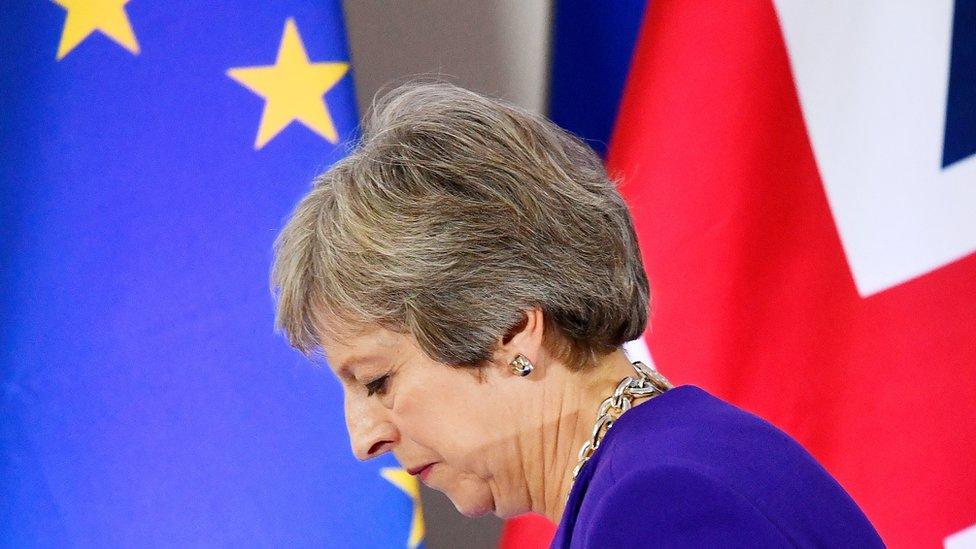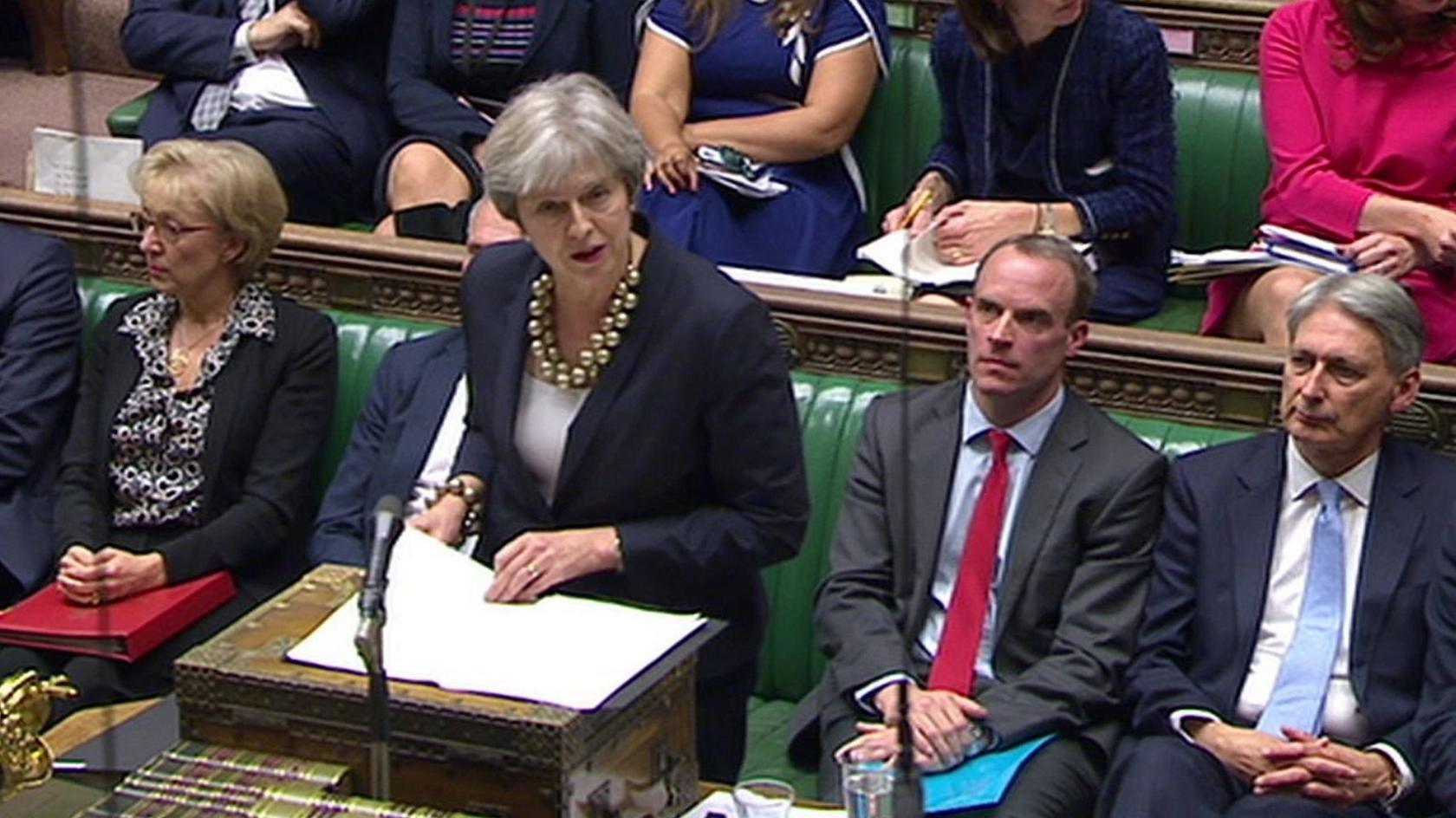Theresa May and Brexit: Has the Tory party run out of patience?
- Published

It has become something of a weekend ritual that hardline Brexiteers breathe fire and brimstone and declare they are on the verge of triggering a vote of confidence in Theresa May.
On Monday mornings the chairman of the 1922 committee Sir Graham Brady inspects his office safe and finds a pile of letters in the corner falls short of the magic number - 48 - needed to trigger a vote.
And so the prime minister limps on for another week until the ritual starts out all over again.
This time, however, there is a different feel. Theresa May managed to achieve the extraordinary feat last week of uniting Remain and Leave Tories in despair after she floated the idea of extending the transition period after the UK leaves the EU. There are now Remain Tories saying the time has come for her to go.
Shifting numbers?
Until now three factors have ensured that the prime minister has been safe from the sniping. If any of these change then the weekend ritual may have a different ending when Sir Graham opens his safe in the coming weeks.
The three factors are:
Numbers. The Brexiteers have so far lacked the 48 signatures (15% of the Conservative parliamentary party) needed to trigger a confidence vote. If they have ever come close to the 48 figure some MPs have declined to join in because they say the plotters definitely lack the crucial other number - the 158 votes (50% of the parliamentary party plus one) needed to unseat the prime minister in a confidence vote.
Fear of the other. Possibly the greatest factor in the prime minister's favour has been a fear that she could be replaced by the other side. So Remainers fear she could be replaced by a hardline Brexiteer and vice versa. As a Remainer of the head, but possibly a Leaver of the heart, Theresa May has been well placed to straddle this divide.
Grudging admiration. Theresa May won admiration as home secretary - when she was patronised by members of the Cameron-Osborne circle - and as prime minister for the dogged way in which she carries on with her job in difficult circumstances. Many Tories, both Leavers and Remainers, have been impressed by the way she has charted a seemingly impossible course between the demands of her party and the guidelines laid down by Brussels.
For the moment these three factors are likely to mean that Theresa May will hang on. But the mood is changing. If you examine the three factors in reverse you can see how events could move against the prime minister:
Grudging admiration - or harmful obstinacy. There is a growing feeling that what may appear an admirable quality - determination - could become a weakness. The fear is that the prime minister's unyielding approach leaves her too slow to adapt as the nature of the negotiations change.
Fear of the other - or other options might be better. If both sides have doubts about Theresa May's fundamental negotiating skills then they may start to reassess their concerns about a new prime minister emerging from the other side of the Brexit divide. Remainers, who were terrified of Boris Johnson making it to No 10, are now feeling less anxious about a contest as his star wanes. David Davis divides opinion but he does attract support across the party, while some of his strongest lieutenants in past contests supported Remain in the referendum.
Numbers... can change. If doubts about Theresa May harden and doubts about successors soften then the numbers to trigger a confidence vote could be met. One of the most ominous thoughts I have heard in recent days is that as many as one hundred Tory MPs could withhold their support in a confidence vote. Even if she persuaded 158 Tory MPs to support her, the party would be "ungovernable" at that point, according to a former cabinet minister who floated this possibility with me.
The odds are that Theresa May will soldier on for the moment. She did after all exceed expectations in her recent Conservative party conference speech.
But Margaret Thatcher was cheered at the end of her speech to the 1990 conference. The following month she was out.
- Published22 October 2018

- Published22 October 2018

- Published21 October 2018
